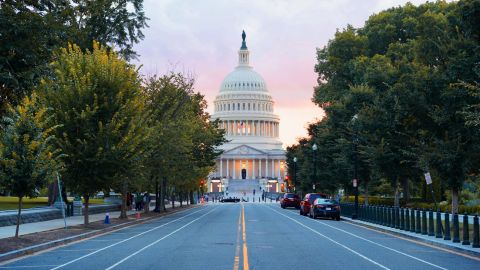ASBMB recommends caregiving support policies
The American Society for Biochemistry and Molecular Biology sent recommendations to the National Academies of Sciences, Engineering and Medicine on June 1 to inform its caregiving study.
The purpose of the National Academies caregiving study is to examine policies and practices to support the retention, reentry and advancement of predominately women caregivers in the science, technology, engineering and mathematics enterprise and propose solutions to these issues.

The society recommended that the study investigate:
- Improving access to affordable child and elder care
- Improving leave-of-absence policies and reentry programs
- Providing support mechanisms such as affinity groups
The ASBMB has a history of advocating for improved caregiving policies and resources.
“Given the increasing mental load and the rising cost and demand of caregiving, we need to improve policies and resources to support caregivers in STEM,” Sarina Neote, public affairs director of the ASBMB, said. “The scientific enterprise is at a crossroads, and we must invest in the STEM workforce. Otherwise, caregivers, especially women, will have no choice but to leave science altogether to fulfill their responsibilities outside of the lab.”
Caring for a child, elderly relative or ill partner is extremely expensive. Assisted living and nursing home facilities can cost up to $8,900 per month. In addition, the median yearly cost of home-based expenses — such as health aides for bathing, dressing or eating and homemaker services for cooking, cleaning or errands — grew by double digits in 2021.
The ASBMB urged the National Academies to “investigate the efficacy of offering child and elder care subsidies, as well as strategies to make this support equitably available across the STEM fields.” To lessen the financial burden of caregiving, the ASBMB also urged the National Academies to assess the feasibility and benefit of offering leave-of-absence policies to not only principal investigators and staff but also to students, postdoctoral researchers, lab assistants and more.
A 2019 study demonstrated that, after having their first child, more than 40% of women with full-time science jobs leave the sector or go part time. The ASBMB stated that providing resources and pathways for STEM workers to reenter the public and private research enterprise is crucial.
The ASBMB urged the National Academies to evaluate scaling up existing reentry and reintegration programs, such as the National Institutes of Health reentry and reintegration supplements and establishing “public–private partnerships with nongovernmental re-entry programs, such as the STEM reentry taskforce led by the Society of Women Engineers and iRelaunch.”
In 2022, over 40% of caregivers reported symptoms of depression, and 23% of caregivers believed their responsibilities negatively impacted their physical health. Based on a community event held by the ASBMB to discuss the challenges of caregiving and other surveys, the ASBMB urged the National Academies to “consider the use and efficacy of programs that connect (caregivers) for seeking advice, creating a safe space to air concerns or barriers, and creating community.”
Finally, in line with its focus on enhancing diversity, equity and inclusion, the ASBMB asserted that all caregiving policies and resources must be equitable across genders. It recommended investigating gender equity plans across all institutions to support caregivers.
Enjoy reading ASBMB Today?
Become a member to receive the print edition four times a year and the digital edition monthly.
Learn moreFeatured jobs
from the ASBMB career center
Get the latest from ASBMB Today
Enter your email address, and we’ll send you a weekly email with recent articles, interviews and more.
Latest in Policy
Policy highlights or most popular articles

Councilors advocate for science on Capitol Hill
ASBMB Councilors meet with their elected officials to advocate for basic scientific research funding and training the next generation of scientists.

Hope for a cure hangs on research
Amid drastic proposed cuts to biomedical research, rare disease families like Hailey Adkisson’s fight for survival and hope. Without funding, science can’t “catch up” to help the patients who need it most.

Supporting science through advocacy and community building
ASBMB calls on scientists to take action as funding cuts and policy shifts threaten the U.S. research enterprise, emphasizing the power of community advocacy and persistence in protecting the future of science.

Seven steps to advocating in your home state
Find out how to schedule, prepare for and conduct a productive district office meeting to communicate the importance of fundamental scientific research funding to your representatives.

ASBMB members call for funding and agency support amidst uncertainty
In 60 meetings on Capitol Hill, scientists urge legislators to reaffirm support for scientific innovation

Embrace your neurodivergence and flourish in college
This guide offers practical advice on setting yourself up for success — learn how to leverage campus resources, work with professors and embrace your strengths.

